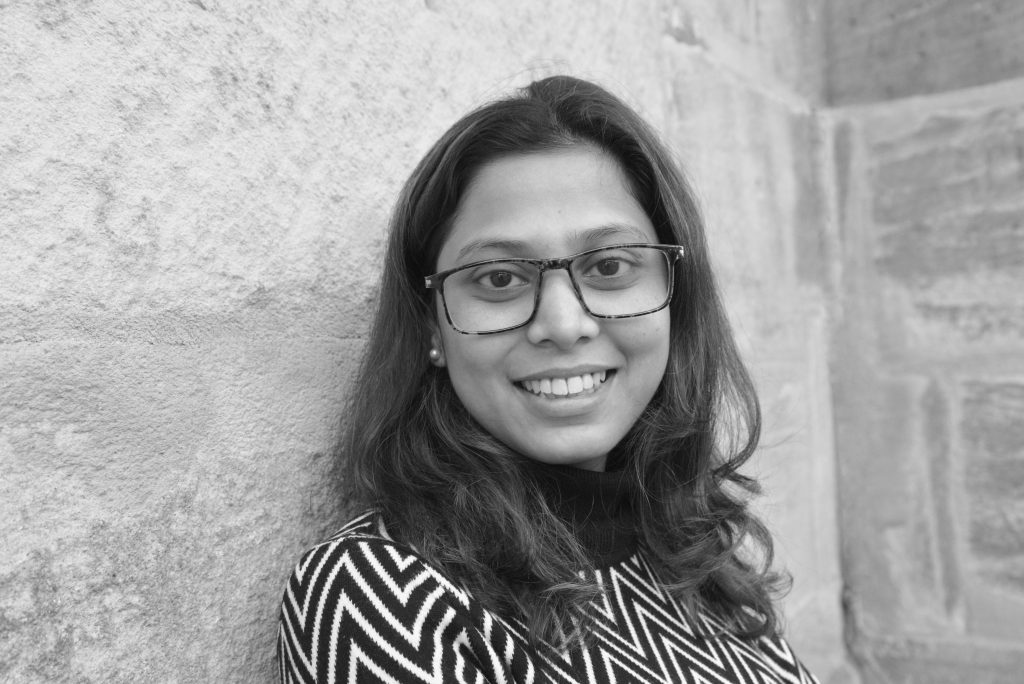
Kontakt
Eberhard Karls Universität Tübingen
Graduiertenkolleg Doing Transitions
Institut für Erziehungswissenschaft
Abteilung Sozialpädagogik
Münzgasse 30
72070 Tübingen
Doctoral Research
Kritika Gosain is working on a doctoral research project titled “Uterus Removal as Transition – Forced Hysterectomies among Sugarcane Workers in Maharashtra”, which adopts a life course perspective to examine the intersections of labour exploitation, gender-based violence, and health impacts. Her study explores how female labourers, particularly those from marginalized communities, are subjected to invasive procedures such as hysterectomies in order to meet the exploitative demands of the labour market. These surgeries often result in early menopause, accelerating the aging process and causing lasting health repercussions.
By employing sociological frameworks such as Intersectionality (Crenshaw, 1989), Super-exploitation (Marini, 1973), and the Migration Development Regime (Agarwala, 2022), the research highlights how caste, class, and gender intersect to deepen the exploitation of these women. Intersectionality is used to unpack the layered vulnerabilities they face, while the concept of Super-exploitation underscores the extreme labour conditions that pressure women into undergoing these procedures for continued employment. The Migration Development Regime situates the phenomenon within broader labour migration and development policies that exacerbate systemic inequalities.
Ultimately, Gosain’s study identifies forced hysterectomies as a form of gender-based violence, shaped by structural injustices embedded in the labour economy.
Conference Presentations
2024
- Paper Presentation: ‘Age, Pain and Vulnerability: Exploring the relation of age and painful experiences through the method of “age blinding”, Tension and Transformation, European Sociological Association (Porto, 27th-30th August 2024)
- Paper Presentation: ‘Intersecting Inequalities in Aging- A Comprehensive study of migrant female sugarcane workers in Maharashtra’ at Intersectional Solidarities: Building Communities of Hope, Justice, and Joy, American Sociological Association (Montreal, 9th-13th August, 2024)
- Paper Presentation: ‘Modern-Day Slavery or Not? A case study of forced hysterectomies in female sugarcane workers of Maharashtra’ at Conference of The International Political Economy of Labour Migration, University of Duisburg-Essen, Germany. (Essen, 18th-20th July, 2024)
- Paper Presentation: ‘Understanding Modern day Slavery-A case study of female sugarcane workers in Beed, Maharashtra’ at Annual Conference: Crisis, Continuity and Change, British Sociological Association. (3rd – 5th April, 2024)
2023
- Poster Presentation: ‘Uterus Removal as a Transition’ In Relational Perspectives on Life Course, International Conference at Goethe University Frankfurt/Main.
2022
- Participated in the Digital National Conference on Sustainable Innovation for Rural Integration hosted by Jawaharlal Nehru University, New Delhi.
2021
- Paper Presentation: ‘Women’s health issues in in farming: A matter of concern or denial? Hysterectomy among female sugarcane farmers in Beed’ In Economic Empowerment of tiny agricultural sectors in India at NABARD.
2017
- Participated in the International Conference on Sustainable and Renewable Energy Development and Design (2017), Royal University of Bhutan, Bhutan fellowship includes intensive communication, writing, social and behaviour change communication training; practical assignments; and mentoring by SBCC professionals.
Grants
- Visitors Grant, awarded by The Swiss Centre of Expertise in Life Course Research (LIVES), 2025.
